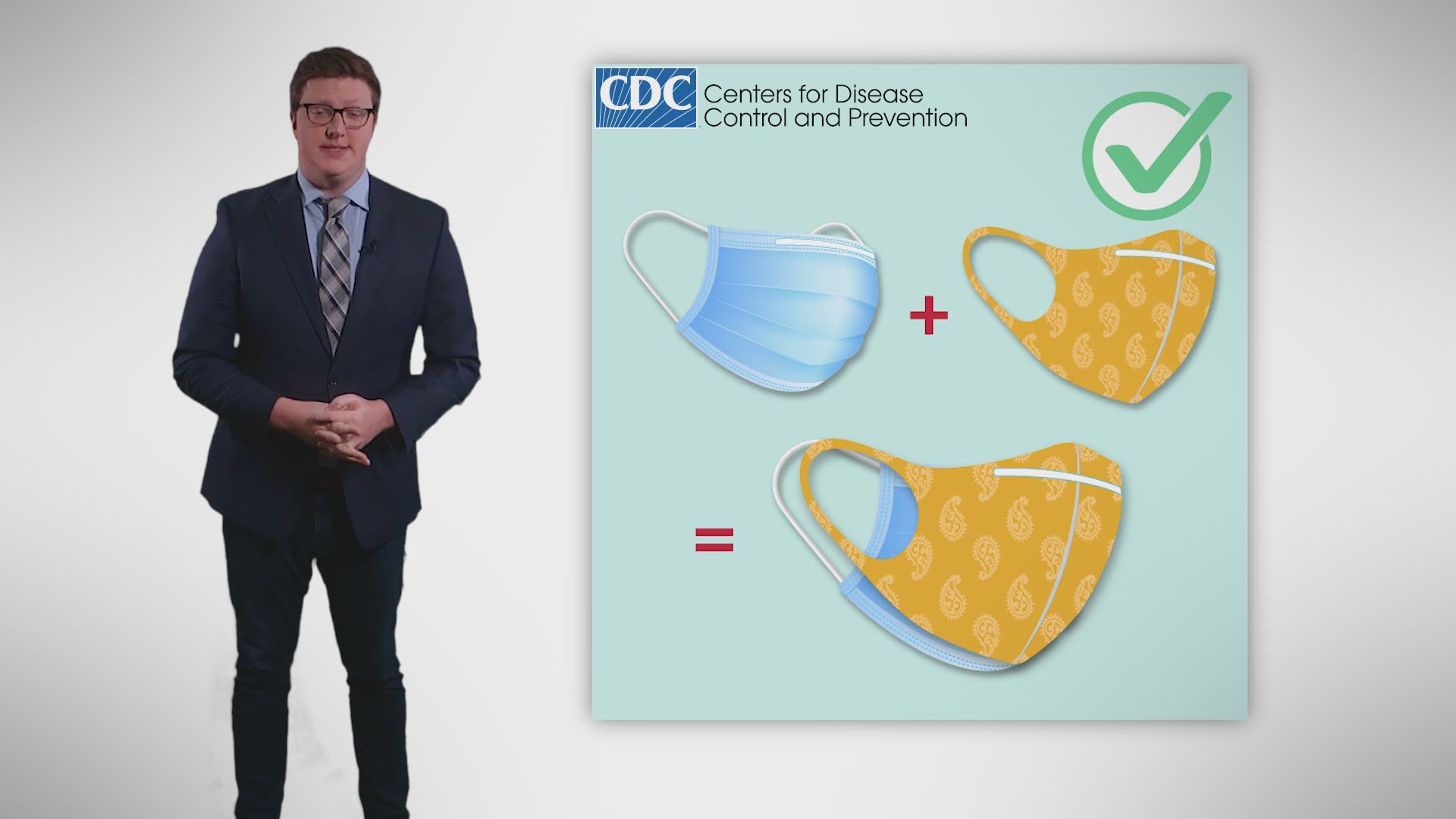SOUTH CAROLINA, USA — On Friday, South Carolina Gov. Henry McMaster said that masks will no longer be mandatory at restaurants or government buildings, an update to a previous executive order regarding COVID-19 regulations.
Since this update, many restaurants and businesses have said they will still require face masks.
Cities and counties across the state are also still requiring face masks, though some have relaxed these guidelines.
Midlands Counties and Municipalities with Mask Ordinances
Counties
- Calhoun County
- Orangeburg County
- Richland County
Municipalities (Some municipalities cross county lines.)
- Arcadia Lakes / Richland County
- Bethune / Kershaw County
- Blythewood / Richland County
- Camden / Kershaw County
- Cayce / Lexington County
- Columbia / Richland County
- Eastover / Richland County
- Forest Acres / Richland County
- Irmo / Lexington County
- Orangeburg / Orangeburg County
- St Matthews / Calhoun County
- Sumter / Sumter County
- W. Columbia / Lexington County
- Winnsboro / Fairfield County
The Town of Lexington dropped their face mask requirement hours after Gov. McMaster's announcement.
Statewide Counties and Municipalities with Face Mask Ordinances
Find a full map from the South Carolina Emergency Management Division here.
Statewide Counties with Mask Ordinances
- Beaufort
- Calhoun
- Charleston
- Georgetown
- Oconee
- Orangeburg
- Richland
- Williamsburg
Statewide Municipalities with Mask Ordinances (Some municipalities cross county lines.)
- Aiken / Aiken County
- Anderson / Anderson County
- Andrews / Georgetown County
- Arcadia Lakes / Richland County
- Barnwell / Barnwell County
- Bethune / Kershaw County
- Bishopville / Lee County
- Blythewood / Richland County
- Camden / Kershaw County
- Cayce / Lexington County
- Central / Pickens County
- Charleston / Charleston County
- Chester / Chester County
- Clemson / Pickens County
- Columbia / Richland County
- Conway / Horry County
- Easley / Pickens County
- Eastover / Richland County
- Edisto / Colleton County
- Estill / Hampton County
- Florence / Florence County
- Folly Beach / Charleston County
- Forest Acres / Richland County
- Gaffney / Cherokee County
- Georgetown / Georgetown County
- Gifford / Hampton County
- Goose Creek / Berkeley County
- Greenville / Greenville County
- Greenwood / Greenwood County
- Hampton / Hampton County
- Harleyville / Dorchester County
- Hartsville / Darlington County
- Hilton Head / Beaufort County
- Irmo / Lexington County
- Isle Of Palms / Charleston County
- James Island / Charleston County
- Kiawah Island / Charleston County
- Mcclellanville / Charleston County
- Mt Pleasant / Charleston County
- Myrtle Beach / Horry County
- N. Charleston / Charleston County
- N. Myrtle Beach / Horry County
- Newberry / Newberry County
- Orangeburg / Orangeburg County
- Port Royal / Beaufort County
- Ravenel / Charleston County
- Ridgeville / Dorchester County
- Rock Hill / York County
- Seabrook Island / Charleston County
- Spartanburg / Spartanburg County
- St George / Dorchester County
- St Matthews / Calhoun County
- Summerville / Dorchester County
- Sumter / Sumter County
- W. Columbia / Lexington County
- Walterboro / Colleton County
- Winnsboro / Fairfield County
- Yemassee / Hampton County
- York / York County
The second phase of vaccinations in the state, Phase 1B, began on Monday.
People eligible for the vaccine in this phase include the following:
- Anyone aged 55 and up
- People with increased risk for severe COVID-19 disease
- People aged 16-64 with one or more of the following high-risk medical conditions:
- Cancer (current, not a history of cancer), chronic kidney disease (any stage), chronic lung disease, diabetes (Type 1 and Type 2), Down syndrome, heart disease (congestive heart disease, coronary artery disease, cardiomyopathy, pulmonary hypertension), HIV/AIDS, solid organ transplant, obesity (BMI >30), pregnancy, sickle cell disease.
- People who have a developmental or other severe high-risk disability that makes developing severe life-threatening illness or death from COVID-19 infection more likely
- People aged 16-64 with one or more of the following high-risk medical conditions:
- Frontline workers with increased occupational risk
- Frontline workers with increased occupational risk are people who:
- Must be in-person at their place of work, and
- Perform a job that puts them at increased risk of exposure due to their frequent, close (less than 6 feet) and ongoing (more than 15 minutes) contact with others in the work environment
- Frontline workers with increased occupational risk are people who:

